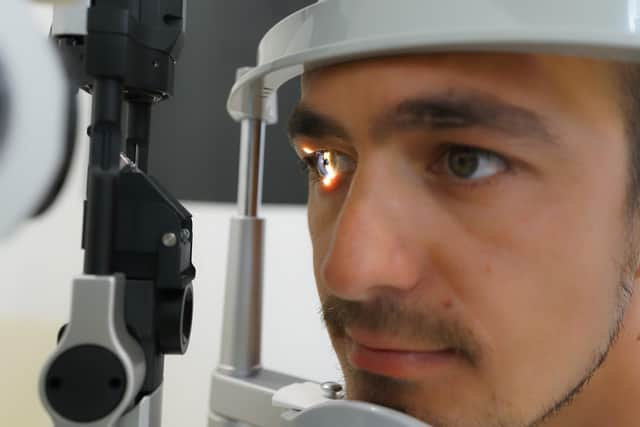Specsavers in Mansfield wants to highlight warning signs in your eyes that could indicate diabetes
and live on Freeview channel 276
It is estimated 13.6 million people are in danger of developing type 2 diabetes and 850,000 are currently living with the condition, yet to be diagnosed.
Patrick Hegarty, optometrist director at Specsavers Mansfield, said: “Diabetes can affect your eyes in many ways and, for some people, it can lead to diabetic retinopathy which, if not treated in time, can lead to sight loss.
Advertisement
Hide AdAdvertisement
Hide Ad"In its early stages diabetic retinopathy usually doesn’t pose any noticeable symptoms, so an eye test can pick it up before you do.


“As diabetic retinopathy is a serious condition it is also important to monitor any changes in your vision and get them checked out by your optometrist.”
The warning signs include persistent floaters, blurred vision and difficulty seeing in the dark.
Patrick said: “You’re more at risk of developing diabetic retinopathy if you have had diabetes for a long time, have a persistently high blood sugar level, high blood pressure, high cholesterol, are pregnant or are of Asian or Afro-Caribbean background.
Advertisement
Hide AdAdvertisement
Hide Ad"By keeping your blood pressure, sugar levels and cholesterol levels down you can help reduce your risk and make sure you have regular eye tests too.
"At Specsavers, we offer digital retinal photography free of charge as part of a standard eye test for customers aged over 40.
"This takes a detailed picture of the back of your eye allowing the blood vessels to be monitored more closely.”
